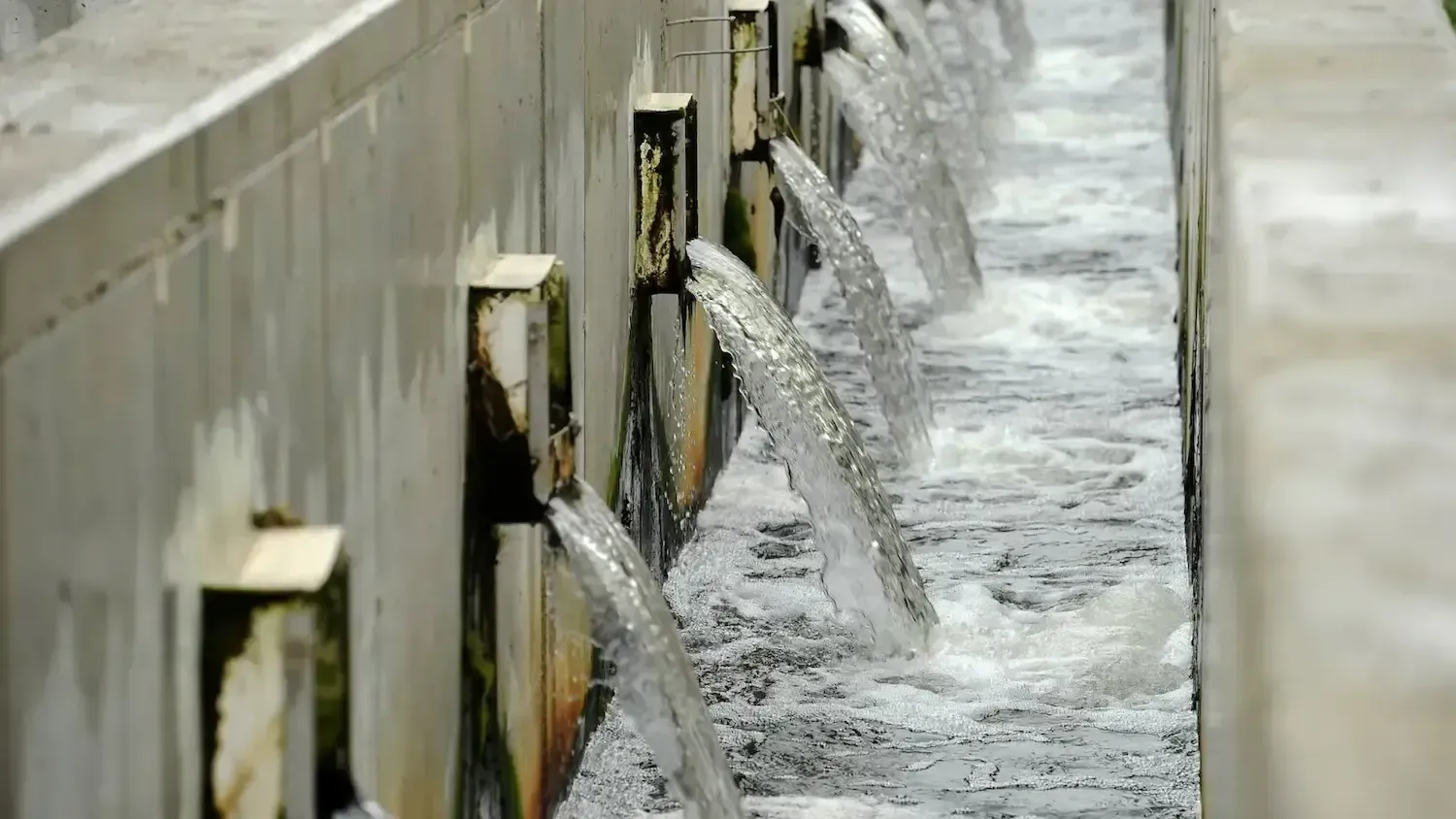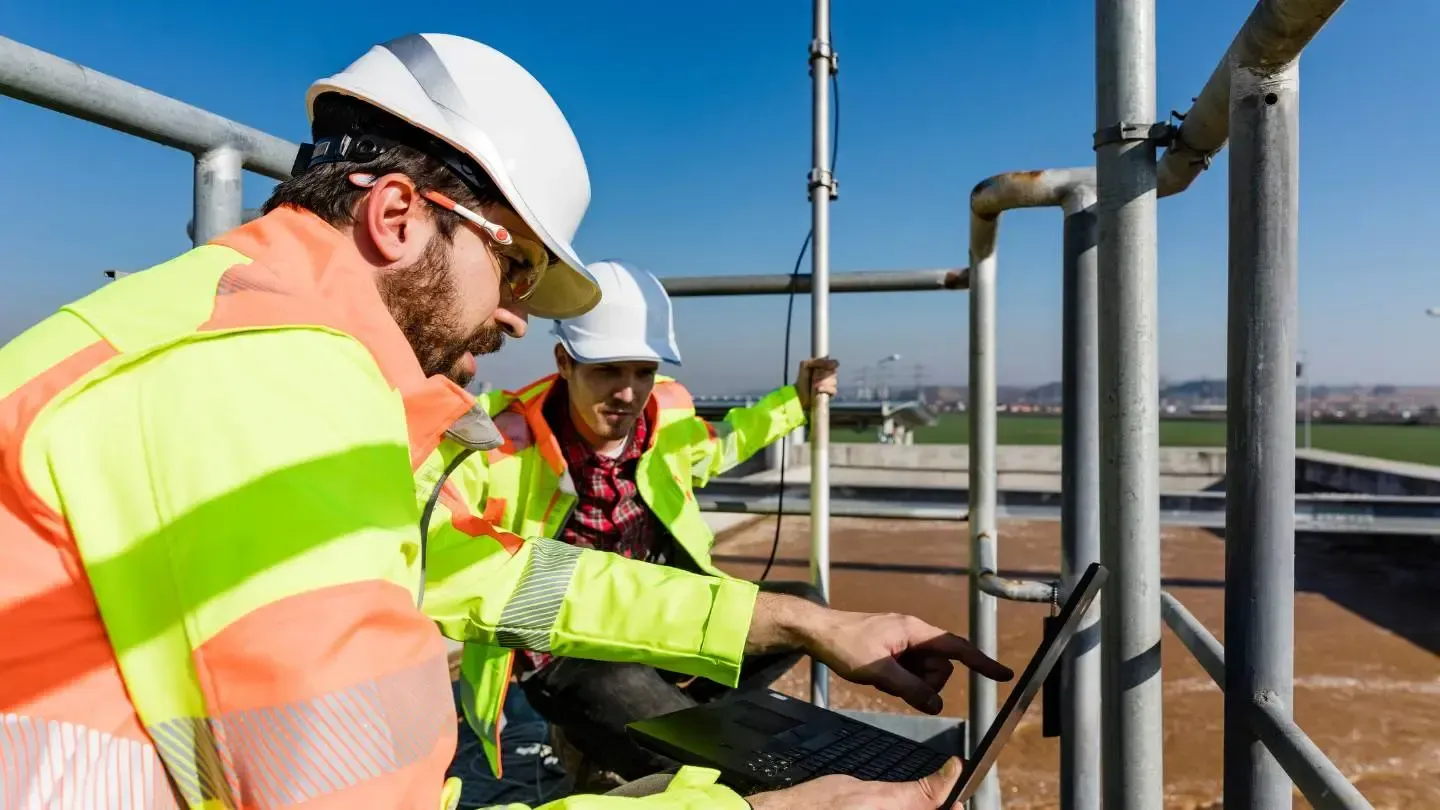Turning waste into resource: the role of wastewater management in sustainability
Did you know only approximately 3% of Earth’s water is drinkable? Water scarcity is no longer a problem of the future; it's a reality faced by communities worldwide today. Climate change and water scarcity go hand-in-hand. Addressing climate change is essential to restore balance to water systems and safeguard this vital resource for future generations.
The water cycle and climate change
Climate change is reshaping the hydrologic cycle, disrupting water availability and intensifying weather patterns worldwide. As global temperatures rise, increased evaporation from oceans, rivers, and soils pumps more moisture into the atmosphere, leading to heavier and more erratic rainfall amplifying the frequency of severe storms and flooding in some regions, while leaving others drier than ever. Additionally, rising sea levels threaten coastal water tables and aquifers with saltwater intrusion, further reducing potable water sources.
Why wastewater management matters more than ever
While water is a renewable resource, it takes a long time for the hydrologic cycle to remove toxins. Wastewater treatment makes the process faster providing safe and reusable water. Wastewater management, once seen purely as a means of waste disposal, is emerging as a cornerstone of sustainable industry.
Industrial processes consume vast amounts of water and generate wastewater that, if untreated, can pollute ecosystems and strain community resources. But beyond simply treating wastewater to meet regulatory standards, forward-thinking companies are recognising its potential for reuse.
Industries have a critical role to play in reducing their environmental impact and dependence on freshwater resources and reusing treated wastewater. For instance, by treating wastewater to a high standard, it can be repurposed for tasks like cooling systems, irrigation, and even non-potable uses within facilities. By implementing these sustainable practices, industries alleviate pressure on freshwater sources while simultaneously meeting sustainability goals.

Environmental and economic benefits of sustainable wastewater practices
The importance of responsible water and wastewater disposal use is highlighted as being the primary focus of two of the United Nations Sustainable Development Goals (6. Clean Water and 14. Life Below Water). Even though the primary goal of wastewater treatment is often regulatory compliance, companies that go beyond the basics stand to gain significant environmental and economic benefits. Effective wastewater management:
1. Enhances efficiency
Wastewater treatment systems improve industrial efficiency by employing advanced treatment processes like liquid-solids separation to contaminants from wastewater streams. The wastewater systems prevent blockages reducing wear on industrial equipment for smoother, uninterrupted operations and lower maintenance expenses.
2. Maximises by-product recovery
Industries using significant water volumes often discharge valuable by-products into wastewater. A wastewater treatment system captures residual materials for recovery and reuse.
3. Protects equipment
Residual waste in wastewater can damage equipment, reducing its operational capacity or preventing helpful biological processes. Treating wastewater before it enters the system minimises the risk of costly infrastructure repairs.
4. Enhances industry and company image
Adopting eco-friendly solutions enhances a brand’s reputation, fostering trust among local communities, customers, employees, and investors, and sets apart the business from its competitors.
5. Prevents waterborne pollution
Wastewater treatment systems play a crucial role in curbing pollution of our waterways. Without proper treatment, untreated wastewater containing contaminants can spread diseases and contribute to antimicrobial resistance and fundamentally alter the habitats of aquatic animals, leading to ecosystem collapse. Wastewater treatment solutions designed to prevent waterborne pollution include:
- Water clarification
- Heavy metal removal
- Silt management
- Dust suppression
- Biological Oxygen Demand (BOD)
- Truck wheel wash systems

6. Reputational Protection
Responsible water use and wastewater disposal is an important issue to many who enjoy hobbies in or near waterways. Businesses who disregard their corporate responsibility to use this precious resource sustainably can suffer irreparable reputational damage.
7. Enhances industry and company image
Adopting eco-friendly solutions enhances a brand’s reputation, fostering trust among local communities, customers, employees, and investors, and sets apart the business from its competitors.
DETA: innovative wastewater treatment solutions
DETA’s wastewater consultants and wastewater management services help industries navigate wastewater treatment technologies, selecting the best solutions based on each facility's specific needs and goals. It’s critical to look at the business holistically to identify water efficiency opportunities.
- Conduct efficiency reviews and optimisation projects
- Undertake site water balances
- Identify water recovery opportunities
- Review water quality
- Design systems for yield recovery and efficient piping
- Implement metering systems
- Develop solutions for water recycling and recovery
Combines traditional and advanced water treatment techniques
Sustainable wastewater management often combines time-tested treatment methods with advanced technologies – there is not a one-size-fits-all solution to purify and reuse water. Using a combination of conventional treatment methods, such as sedimentation and biological treatment, with advanced technologies such as reverse osmosis and bio-organic polymers, a broader range of pollutants are addressed, so even the strictest regulatory requirements are met.

Energy-efficient wastewater solutions
The energy required to treat wastewater can be substantial. DETA’s energy consultants NZ/Australia audit energy efficiency and make recommendations to achieve cost reduction goals. For instance, waste-to-energy technologies can transform the organic sludge produced during treatment into biogas, which can be used to power facilities, offsetting a significant portion of energy costs. Investing in energy-efficient technologies, means companies reduce both their carbon footprint and their operational expenses, achieving a win-win for sustainability and the business.
Creates a circular economy in water conservation
By integrating wastewater into the circular economy model, what was once a liability can be turned into an asset, reducing the carbon footprint and operational costs alike. At its core, a circular economy approach seeks to keep resources in use for as long as possible. By treating and reusing wastewater, industries can minimise waste disposal and reduce their dependency on freshwater sources. This approach not only aligns with environmental goals but also decreases the need and reliance for costly freshwater supplies and wastewater disposal costs.
Regulatory compliance and risk mitigation
Navigating the regulatory landscape of industrial wastewater is no small task, but compliance is crucial. Regulations around wastewater discharge are becoming stricter worldwide as environmental protection is prioritised. DETA’s expertise sustainability services and wastewater management ensure that business practices meet and even exceed current local standards, minimising the risk of fines or other penalties, but also have capacity to adjust to future requirements too.
The path forward: investing in a sustainable future with DETA
Partnering with experienced sustainability consulting services in Australia and New Zealand, ensures the transition to sustainable practices are seamless and effective. With the right strategies and technologies, companies can turn wastewater from a costly waste stream into a valuable resource, demonstrating that profitability and environmental stewardship can go hand-in-hand. From regular monitoring, and industrial project management to continuous training of staff, DETA are here to help you every step of the way.





